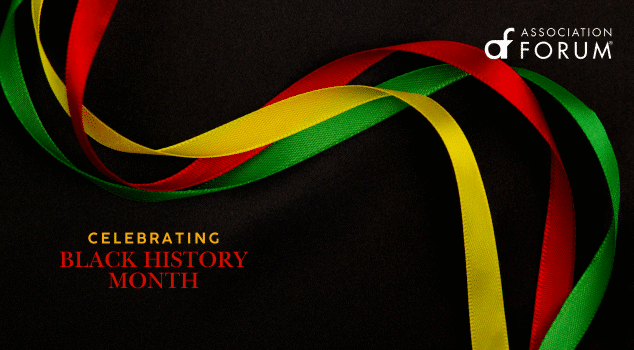Association Professionals Explore the Merits of Being a Generalist V. Specialist

It’s a well-known revelation that virtually no one goes to school to be an association professional.
Some of us even found our association career completely by accident. But while our path to the association community may have been a circuitous one, our career stories within the field can be equally intriguing. Paths seem to fall into one of two primary categories: “Generalists,” whose roles might encompass a variety of different tasks, and “Specialists,” who might focus more intensely in one area or department.
To learn more about the differences between these types of opportunities, FORUM interviewed four association professionals to learn what they like about the path they’ve chosen.
 Nikki Palluzzi, CAE
Nikki Palluzzi, CAE
Senior Director, Member Services & Experience National Association of
Personal Financial Advisors (NAPFA)
Please tell us a little bit about your association background and your current position. How did you end up at your current association?
I started right out of college at Smithbucklin, working on membership and programs for technology user groups. It was a great place to learn a lot, and I credit my time there for connecting me to amazing people in the industry and gaining so many skills that I’ve taken with me through my career. After almost 10 years, I was ready for a new opportunity, and decided to join NAPFA to focus my time on membership. Since then, my portfolio has grown to include DEI, volunteer management, running its foundation, and several other areas within the association.
Do you consider yourself to be a “generalist” or a “specialist?” Why?
I’d say I’m a generalist who has had the opportunity to use that to become a specialist in a few areas. I’ve always been someone who likes to raise their hand when something interesting comes along, whether it’s specifically tied to my current job role or not. Luckily, with a job in membership, it’s easy to always make the case that something new is tied into membership! Being a generalist means I’m not boxed into doing the same thing over and over—I’m able to expand the portfolio of programs I work on or skills I can learn.
What do you like best about your current environment?
NAPFA is an organization with 10 staff members, so we must be nimble and flexible, and I love that. It means that when we start a new program, if I’m interested in it, I can get involved with it in some way. Some of my very favorite parts of my job, like leading our DEI initiative, were not initially pitched to me, or even created when I first came on board seven years ago. Being a generalist means that I can fulfill my need to be constantly learning new skills or taking on new projects. It also means I’m able to connect the dots between projects because I have a high-level view of so many programs within the association. For example, while managing the foundation I’ve been able to see so much potential for collaboration with the association that we didn’t do before—because I’m also the Senior Membership Director, I can easily see where those areas are and then execute on them!
What has surprised you the most about being a generalist or a specialist?
Early in my career, the term generalist felt negative to me, like it meant I wasn’t great at anything, but instead that I could cover ground in a lot of areas without much expertise anywhere specific. I know now that nothing could be further from the truth—it’s because of my strong skills in time management, volunteer management, and understanding my association that allows me to be able to take on programs in different areas and manage them all seamlessly. I love that I’m not boxed into one specific area, but that I have an opportunity to really go where the highest need for the organization is, or where I’m passionate about something.
If you had to offer advice to an early careerist or someone entering the field, what would you say?
It’s okay to not specialize in one area! Being exposed to different areas of association management, programs, or organizations will help you to really understand what associations are all about and will give you an edge when you’re making your next career decision. If you work on several different programs or projects, you’re better poised to make a change inside or outside your current organization when you’re growing your career. Also, always raise your hand! I’ve gotten to work on such meaningful projects just by letting my bosses know that I am always open to shifting my role for something interesting or new. That benefits the organization by showing your supervisor that you’re a team player, and it benefits you because you’re able to keep learning and growing your skillset!
 Jonathan Adams, MBA, CAE
Jonathan Adams, MBA, CAE
Information Technology Director
Water Quality Association (WQA)
Please tell us a little bit about your association background and your current position. How did you end up at your current association?
I have been with the Water Quality Association since 2015, and I currently serve as the IT Director. I found the job posting online and took the position with a solid understanding of WQA’s IT needs, but only a basic idea of what a trade association actually was.
In my first few years at WQA, I very much saw myself as an IT professional working for an association. As I began to get more involved within the association community, my perspective shifted, and I began to see myself as an association professional who works within IT.
Do you consider yourself to be a “generalist” or a “specialist?” Why?
To me, it’s more of a spectrum rather than one or the other. My expertise is definitely rooted in technology, but through work and volunteer opportunities, I’ve been fortunate to work alongside and learn from some amazing people across different industries and roles. As a result, the needle has slowly moved from specialist to generalist. Right now, I’d say I’m somewhere in the middle, leaning a bit towards generalist.
What do you like best about your current environment?
I’m really big on collaboration. Within WQA, nobody works in a bubble. Our culture is centered around encouraging positive and effective collaboration. In situations where that isn’t happening, we address it openly and directly.
Within the broader association community, it’s remarkable to witness the level of sharing, support, and encouragement that people offer one another. This openness and generosity often come from a place of gratitude, as we have all received support, encouragement, and wisdom from others in the past. It creates an amazing cycle where we all help each other. As a result, we can make a more significant impact on our associations which in turn positively impacts industries and communities.
What has surprised you the most about being a generalist or a specialist?
Honestly, it’s the sheer amount of new information and experiences out there. Whether it’s the new complexities and considerations for AI or innovative new membership models, as my experience and understanding grows, I am surprised by how much there is to learn and understand. The goal post for expertise within any domain seems to be continually moving.
If you had to offer advice to an early careerist or someone entering the field, what would you say?
Put yourself out there, be curious, and look for opportunities to engage both within and outside your organization. I’ve had some fantastic experiences and met some truly incredible people, all because I stepped out of my comfort zone.
 Autumn Wolfer, MA
Autumn Wolfer, MA
Manager, Dental Society Outreach
American Dental Association (ADA)
Please tell us a little bit about your association background and your current position. How did you end up at your current association?
I was first introduced to the world of association management when I was hired as a marketing coordinator at Smithbucklin. It all sort of happened by accident. After four years at Smithbucklin, I’ve spent the last 12 years in various roles at several standalone associations. I’ve worn a lot of hats over the years and have done everything from sending blast emails and press releases to selling exhibit hall space, launching an online community, and developing membership and marketing plans. In 2018, at the referral of a friend, I was hired in my current role as Manager, Dental Society Outreach at the American Dental Association and I absolutely love it.
Do you consider yourself to be a “generalist” or a “specialist?” Why?
In my current role at the ADA, I would definitely consider myself more of a generalist. As a tripartite organization, our members join at three different levels: ADA (national), 53 states and territories, and 400+ local dental societies. In my role, I serve as somewhat of an association consultant to the state and local dental societies. The ADA has more than 400 employees, but the state and local groups only have a fraction of that. They often struggle with capacity and staff resources, which is where my role comes in. I work with several state and local society executive directors and staff not only as a liaison to the ADA, but also to provide assistance and resources related to initiatives such as board orientation, strategic planning, and leadership training. All of our team members are also certified DEI facilitators.
What do you like best about your current environment?
My current role is really fulfilling because it encompasses everything that I love about working in the association management industry. And my absolute favorite part about association management is the people. I’ve always said one of the best things about working with associations is that you get to work with volunteers who are there because they want to be there, not because they have to be. It’s something truly unique to our profession that has always made me feel really fortunate that I get to do this work.
With over 159,000 shared members across the country, it’s impossible not to look at our organizations in a more holistic way. Strategizing ways to ensure member value is equally distributed across the multi-levels of the tripartite takes collaboration and creating alignment is important. I’m a true association nerd and absolutely love working with my states to develop their strategic plans and identifying opportunities for the future.
There are wild demographic and psychographic disparities across the dental population today. Dentistry is changing fast and the new generation of professionals are practicing in entirely different ways than their seasoned counterparts. Assessing this changing landscape and taking a deep dive into member needs in collaboration with our states and locals is so interesting to me. The strategic work and data analysis involved with this is truly one of my favorite parts of the work we do.
What has surprised you the most about being a generalist or a specialist?
I think one of the greatest aspects of working in association management is that one day is never the same as the last. My colleagues and I say this often when talking about our work with our state and local societies: “when you’ve seen one state, you’ve seen one state.”
Many people describe the nature of our work as akin to wearing many hats. I think what I’ve learned throughout my career is that whether you’re a generalist or a specialist, at one point or another we all wear the “membership” hat. Our members, regardless of the industry, are the sole purpose for our organizations. They are why associations exist. It’s fascinating to me to learn about what drives an individual’s decision to join an organization. At the end of the day, we get to help people feel more fulfilled—personally and professionally—and I feel very fortunate to be a part of that.
If you had to offer advice to an early careerist or someone entering the field, what would you say?
To someone just starting out in association management, I would definitely encourage them not to be afraid to explore what is interesting to them. I started my association career in marketing and now I’m more involved in overall organization strategy and I love it. Working in this field gives you an amazing opportunity to explore different paths, whether that’s marketing and sales, emerging technology, finance, executive management, etc. Association management truly does offer something for everyone and is, I think, one of the most perfect environments to be in to figure out what you’re truly passionate about for a career.
 Brie Bingham
Brie Bingham
Membership and Marketing Manager
Cremation Association of North
America (CANA)
Please tell us a little bit about your association background and your current position. How did you end up at your current association?
I come from the 501(c)(3) side of the nonprofit sector, only discovering associations while completing my Masters in Nonprofit Management and finding CANA through a staffing agency. Now, seven years later, I am the Membership and Marketing Manager in a staff of seven for our international trade association of more than 3,500 members. In addition to database maintenance and member service, I have taken over many of the promotional strategy and content marketing responsibilities for CANA.
Do you consider yourself to be a “generalist” or a “specialist?” Why?
A generalist, definitely. I’m a proud utility player and pinch hitter. I love seeing our year-end accomplishments and knowing I contributed to every one of them. I love that my volunteers see me as the person they can contact about anything because I’ll have the answer (or will know where to find it). I love that each day is different with new projects and challenges.
What do you like best about your current environment?
Fortunately, I learned many years ago that I thrive in small organizations because the environment allows room for my generalist nature to flourish. Without the silos of larger staffs, I can participate in every project. I believe asking questions and discussing strategy across departments encourages innovation and proactive problem-solving. Plus, by knowing something about everything we’re doing, I can be better at my job: both knowing when changing something in one place will impact something else down the line, and as a resource to my members and taking a holistic approach to promoting our association’s work.
What has surprised you the most about being a generalist or a specialist?
Some of my colleagues are definitely specialists! It certainly takes all sorts to make an association go ‘round, and they are very happy and successful as experts in their field. As a team, we pool our skills to work together and support one another to keep our association moving forward.
If you had to offer advice to an early careerist or someone entering the field, what would you say?
I have always thought that learning what you don’t like to do is as valuable as learning what you do. As a generalist, I have so many opportunities to try new things and, hopefully, set aside what doesn’t fit. And, even if you’re not a generalist, starting at a small association can allow you to explore many roles while you’re figuring out what you want to specialize in.
Tags
Related Articles
BAE Chicagoland Kicks Off: Join the Movement!
Black Association Executives (BAE) is officially in Chicagoland, bringing a bold new community to Black...
The Weight We Carry: What Teams Wish Leaders Understood
Association professionals are feeling the strain of relentless change—burnout, shifting expectations, and emotional fatigue are...
Workforce to Hit 30% Gen Z by 2030: Ready or Not?
Gen Z isn’t lazy—they’re reshaping work with speed, collaboration, and purpose. Here’s how to engage...





